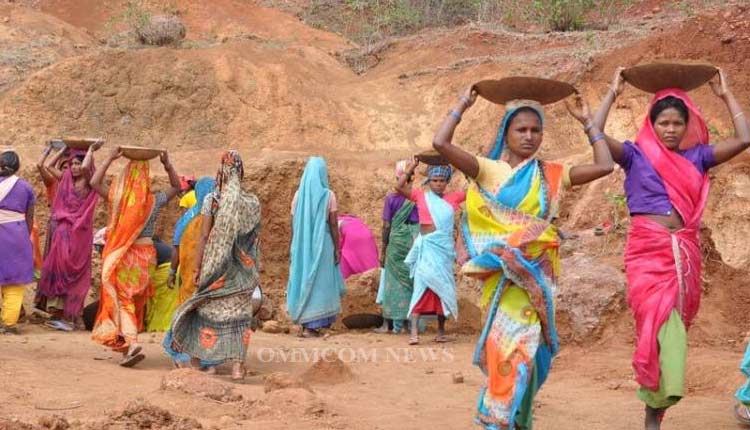
Homelessness is on the rise in both urban and rural areas of Odisha, exacerbating the struggles of its inhabitants. Currently, 11.07 percent of the population in the state lives in poverty, reflecting widespread economic hardship. Hunger and malnutrition continue to be pressing concerns, with many families unable to access sufficient food, safe drinking water and nutrients. The high levels of unemployment and the resulting distress migration highlight the dire economic situation, as people leave their homes in search of better opportunities. The government policies have directly and indirectly supported private educational and health infrastructures, while public health and educational infrastructures are in decline in the state.
Despite the severity of these problems, neither the previous nor the current government has made them a priority. This lack of attention has hindered progress and left many citizens without the welfare support they need. Effective policies and initiatives are urgently required to address homelessness, poverty, hunger, malnutrition, unemployment, and migration. Only through welfare efforts, the state can improve the living conditions and prospects of its people, but the government is busy with gods and goddesses in the name of heritage protection.
The new Chief Minister of Odisha, Mr. Mohan Majhi, follows in the footsteps of Mr. Naveen Patnaik. Like his predecessor, Mr. Majhi continues to emphasise the welfare of gods, goddesses, and their abodes, demonstrating considerable generosity in this regard. Both leaders have prioritised the reconstruction and maintenance of religious sites, allocating substantial portions of the budget to ensure the divine opulence and sacred welfare of deities within the state. Meanwhile, the schools and hospitals are in decimated conditions. The working people continue to dream of prosperity while grappling with everyday poverty.
This juxtaposition of divine prosperity with human pauperisation starkly defines the developmental trajectory in the state. Both BJP, BJD and their leaders prioritise the reconstruction of homes for gods and goddesses, while the people of Odisha suffer from hunger, hopelessness, and homelessness. The focus on religious infrastructure stands in sharp contrast to the neglected needs of the populace. While funds are abundant for temple renovations and deity worship, essential public services such as public healthcare, mass education, and social welfare remain underfunded and inadequate. This disparity highlights a critical issue in governance: the prioritisation of spiritual and religious concerns over the immediate, tangible needs of the citizens.
Under the leadership of both Mr. Patnaik and Mr. Majhi, the state continues to witness efforts to enhance religious sites. However, this has often come at the expense of addressing pressing social issues such as poverty, hunger, and homelessness. The people of Odisha continue to face daily hardships, dreaming of prosperity amidst their struggles. The leadership of both the BJD and BJP argue that the investment in religious sites promotes cultural heritage and tourism, potentially leading to economic benefits. However, this perspective overlooks the pressing realities faced by the state’s residents. The lack of employment opportunities, insufficient support for farmers, and inadequate housing conditions are issues that demand urgent attention and resources.
Despite the significant investment in temples and other religious sites, many citizens of Odisha still struggle with basic necessities due to misplaced priorities. The contrast between divine prosperity and human impoverishment underscores a glaring issue: the urgent needs of the population are often overshadowed by spiritual and religious concerns.
Odisha is a mineral rich state with huge potential for alternative, green, clean and sustainable industrialisation. It has huge potential for agricultural, forest and marine resource development. The mobilisation of these resources is central to the development of the state and its people. But the visionless leadership in an ideological free zone of politics in Odisha is pauperising its people, while allocating abundant budgetary resources for the abodes of gods and goddesses. The constitutional principle of a secular state and government is undermined by both BJD and BJP governments. The new BJP government and its Hindutva politics is fuelling communal conflicts and destroying harmony in Odia society.
It is clear that the government in Odisha does not want to create conditions for economically prosperous and politically conscious citizens who can question the government and its legitimacy. The government ensures compliant citizens by promoting religion in public life, as religious citizens seldom question the legitimacy of state and government activities.
It is imperative that the government re-evaluates its priorities and focus on a balanced approach that addresses both cultural preservation of religious sites and human welfare, which can pave the way for a more equitable, secular, progressive and prosperous Odisha. By addressing the basic needs of the people—such as healthcare, education, and housing—the government can pave the way for better quality of life for all its residents. This balanced approach will ensure that while the state’s rich cultural heritage is maintained, its citizens do not continue to suffer from neglect and deprivation. People can protect their culture, religion, and heritage only when they have economic stability in their lives and livelihoods.
It is the working people who construct roads, schools, colleges, hospitals, temples, churches, mosques, and even space stations. The working masses have also removed kings and established democracies to assert their supremacy. History bears witness to the transformative power of people over empires and emperors. There would be no religions or gods without people. Therefore, the state and government should start working for the people. Gods and goddesses can take care of themselves. Viva la People!
